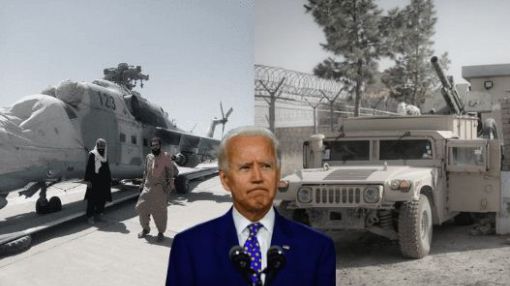Washington: – Has the Biden administration taken precautions to ensure that Pakistan’s nuclear weapons do not fall into the hands of the Taliban, who have seized power in Afghanistan, since the US military withdrawal? This question has been asked by the members of the US Congress. In a letter to President Biden, 68 members of both houses of the US House of Representatives expressed serious concern about Pakistan’s nuclear security and other possible threats from the Taliban. Has the Biden administration identified these threats and planned to counter them? This is also asked in this letter.
 As the Taliban rule is settling in Afghanistan, the United States is silently monitoring the Taliban’s actions. The issue has been hotly debated in the United States. But in a letter to President Biden, about 68 members of both houses of the US Congress drew attention to a sensitive issue from the security perspective. The letter expressed serious concern that after establishing its rule in Afghanistan, the Taliban could destabilise nuclear-armed Pakistan and thereby seize Pakistan’s nuclear weapons.
As the Taliban rule is settling in Afghanistan, the United States is silently monitoring the Taliban’s actions. The issue has been hotly debated in the United States. But in a letter to President Biden, about 68 members of both houses of the US Congress drew attention to a sensitive issue from the security perspective. The letter expressed serious concern that after establishing its rule in Afghanistan, the Taliban could destabilise nuclear-armed Pakistan and thereby seize Pakistan’s nuclear weapons.
Has Biden’s administration taken cognisance of this threat? If the answer is yes, then what is the Biden administration’s plan to counter it? Such a question was asked by the American people’s representatives through this letter. Also, if China fills the void created by the US military presence in Afghanistan, what about US interests? The letter questioned whether the Biden administration had considered the impact of the withdrawal from Afghanistan on the Gulf region.
Experts had warned long ago, ‘If not today, then tomorrow, Pakistan‘s nuclear weapons will not fall into the hands of terrorist organisations. This is inevitable.’ The threat has grown exponentially since the Taliban took control of Afghanistan. Just two days ago, a Taliban spokesman said Pakistan is their second home. This has sparked talk of the Taliban asserting its sovereign rights over Pakistan. At the same time, the Taliban flatly refused to hand over members of the Tehrik-i-Taliban Afghanistan (TTA), in Afghanistan, to Pakistan.
Until now, Pakistan had assumed that the Taliban in Afghanistan was its friend and that the Taliban who carried out the massacre in Pakistan were its enemies. At the same time, Pakistani military officials and extremists insisted that a distinction should be made between Afghanistan and the Pakistani Taliban. However, Pakistan is beginning to realise that these two organisations are part of the Taliban, two sides of the same coin. Responsible analysts and journalists in Pakistan are now acknowledging that the Taliban had devised a strategic ploy to hold Pakistan hostage by naming one of its groups Tehrik-i-Taliban.
Tehrik-i-Taliban Pakistan (TTP) leaders have said that the success of the Taliban in Afghanistan is an inspiration to them, and the same will happen in Pakistan. The media in the country are expressing fears that a horrific spate of saboteur activities will begin in Pakistan shortly, and Pakistan will be rocked. Najam Sethi, a senior Pakistani journalist, has suggested that if the Taliban in Afghanistan is not taking action against Tehrik, the Pakistani military should launch a surgical strike in Afghanistan.
Tehrik will use terror to seize power in Pakistan. There are already signs that the Taliban in Afghanistan will receive the support it needs. There has been an increase in terrorist attacks in Pakistan. This has led to the weakening of the Pakistani systems. Taliban’s victory in Afghanistan has boosted the confidence of extremists in Pakistan and support for terrorist organisations, such as Tehrik-i-Taliban Pakistan (TTP). This raises the question of whether it will be possible for Pakistan, which claims to be a nuclear-armed country, to protect its nuclear arsenal. The Biden administration seems to have no choice but to take serious cognisance of the matter.












